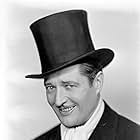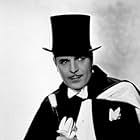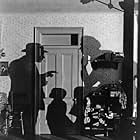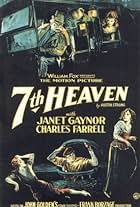IMDb RATING
5.5/10
1.3K
YOUR RATING
A charming, happy-go-lucky bandit in old Arizona plays cat-and-mouse with the sheriff trying to catch him while he romances a local beauty.A charming, happy-go-lucky bandit in old Arizona plays cat-and-mouse with the sheriff trying to catch him while he romances a local beauty.A charming, happy-go-lucky bandit in old Arizona plays cat-and-mouse with the sheriff trying to catch him while he romances a local beauty.
- Won 1 Oscar
- 4 wins & 4 nominations total
Henry Armetta
- Barber
- (uncredited)
James Bradbury Jr.
- Soldier
- (uncredited)
Frank Campeau
- Man Chasing Cisco
- (uncredited)
John Webb Dillion
- Second Soldier
- (uncredited)
Alphonse Ethier
- Sheriff
- (uncredited)
Jim Farley
- Townsman
- (uncredited)
William Gillis
- Guard
- (uncredited)
Pat Hartigan
- Cowpuncher
- (uncredited)
Soledad Jiménez
- Tonita the Cook
- (uncredited)
Ivan Linow
- Russian Immigrant
- (uncredited)
Tom London
- Man in Saloon
- (uncredited)
Helen Lynch
- Stagecoach Passenger
- (uncredited)
J. Farrell MacDonald
- Stage Passenger
- (uncredited)
Julius Viggo Madsen
- Tenor in Quartet
- (uncredited)
Storyline
Did you know
- TriviaThe first all-talking, sound-on-film feature shot outdoors.
- GoofsWhen Cisco robs the stagecoach, he is wearing an army holster (flap-over), the same type the Sergeant wears. But for the rest of the movie, he wears an open holster.
- Quotes
[last lines]
The Cisco Kid: Her flirting days are over. And she's ready to settle down.
- ConnectionsFeatured in The Soundman (1950)
- SoundtracksMy Tonia
Words and Music by Buddy G. DeSylva (as DeSylva), Lew Brown (as Brown) and Ray Henderson (as Henderson)
Sung by Warner Baxter (uncredited)
Featured review
Despite the desert setting and saloons and the presence of a Mexican bandit, cavalry officers and senoritas, this is really an exotic romantic drama (based on a story by the renowned O. Henry) as opposed to a straight Western. Being an early Talkie, it's obviously creaky with very dated acting but retains plenty of interest for the non-casual film-buff even after all these years: for one thing, it basically served as a template for the myriad Westerns that followed involving the exploits of some famous bandit or other (beginning with King Vidor's BILLY THE KID [1930]); besides, the flirtatious character of Dorothy Burgess may well have inspired Linda Darnell's Chihuahua in John Ford's classic MY DARLING CLEMENTINE (1946) nearly twenty years later!
Warner Baxter was a popular star of the era who has been largely neglected over the years; his Oscar-winning performance here isn't bad, but seems hardly outstanding at this juncture his talent is more readily evident, in fact, in such later films as 42ND STREET (1933) and John Ford's THE PRISONER OF SHARK ISLAND (1936). The same can be said of Edmund Lowe: if he's at all remembered today, it's for his "Quirt & Flagg" series of war films with Victor McLaglen (three of them helmed by this film's original director, Raoul Walsh), the Bela Lugosi vehicle CHANDU THE MAGICIAN (1932; in the title role), and the noir-ish gangster drama DILLINGER (1945). While his character curiously speaks in modern i.e. 1920s slang, he interacts well with both Baxter and Burgess especially effective is the scene where he comes face to face with Baxter's Cisco Kid at a barber shop and, ignorant of the latter's identity, lets him slip away.
The film features a couple of songs (one of them, by the famed songwriting trio of DeSylva-Brown-Henderson, is heard several times throughout and even serves as an Overture to the feature proper) and archaic comedy relief by a number of minor characters notably Burgess' long-suffering elderly maid. There's far more talk than action here, but the twist ending (subsequently much copied) is remarkable if anything, because it's unexpectedly pitiless for a film of its era! Incidentally, the lead role was to have been played by Raoul Walsh himself but he was injured (eventually losing an eye) in a driving accident; Irving Cummings replaced him behind the cameras (and, oddly enough, alone received the Best Director nomination, despite Walsh's name still appearing in the credits)!
P.S. Baxter, Lowe and director Cummings were re-united shortly after for a sequel THE CISCO KID (1930); one wonders whether copies of the film still exist as, ideally, it should have been paired with the original on the bare-bones Fox DVD...
Warner Baxter was a popular star of the era who has been largely neglected over the years; his Oscar-winning performance here isn't bad, but seems hardly outstanding at this juncture his talent is more readily evident, in fact, in such later films as 42ND STREET (1933) and John Ford's THE PRISONER OF SHARK ISLAND (1936). The same can be said of Edmund Lowe: if he's at all remembered today, it's for his "Quirt & Flagg" series of war films with Victor McLaglen (three of them helmed by this film's original director, Raoul Walsh), the Bela Lugosi vehicle CHANDU THE MAGICIAN (1932; in the title role), and the noir-ish gangster drama DILLINGER (1945). While his character curiously speaks in modern i.e. 1920s slang, he interacts well with both Baxter and Burgess especially effective is the scene where he comes face to face with Baxter's Cisco Kid at a barber shop and, ignorant of the latter's identity, lets him slip away.
The film features a couple of songs (one of them, by the famed songwriting trio of DeSylva-Brown-Henderson, is heard several times throughout and even serves as an Overture to the feature proper) and archaic comedy relief by a number of minor characters notably Burgess' long-suffering elderly maid. There's far more talk than action here, but the twist ending (subsequently much copied) is remarkable if anything, because it's unexpectedly pitiless for a film of its era! Incidentally, the lead role was to have been played by Raoul Walsh himself but he was injured (eventually losing an eye) in a driving accident; Irving Cummings replaced him behind the cameras (and, oddly enough, alone received the Best Director nomination, despite Walsh's name still appearing in the credits)!
P.S. Baxter, Lowe and director Cummings were re-united shortly after for a sequel THE CISCO KID (1930); one wonders whether copies of the film still exist as, ideally, it should have been paired with the original on the bare-bones Fox DVD...
- Bunuel1976
- Jul 14, 2007
- Permalink
- How long is In Old Arizona?Powered by Alexa
Details
Box office
- Gross US & Canada
- $2,834,000
- Runtime1 hour 35 minutes
- Color
Contribute to this page
Suggest an edit or add missing content


































